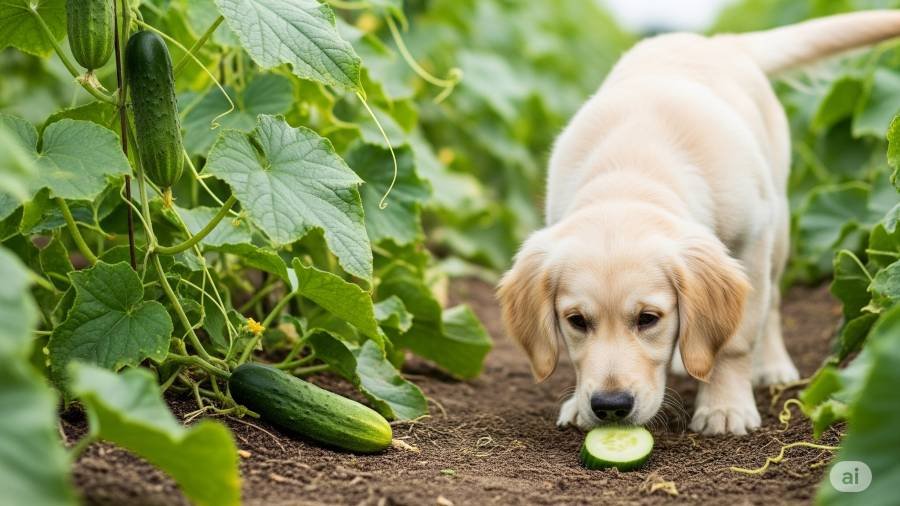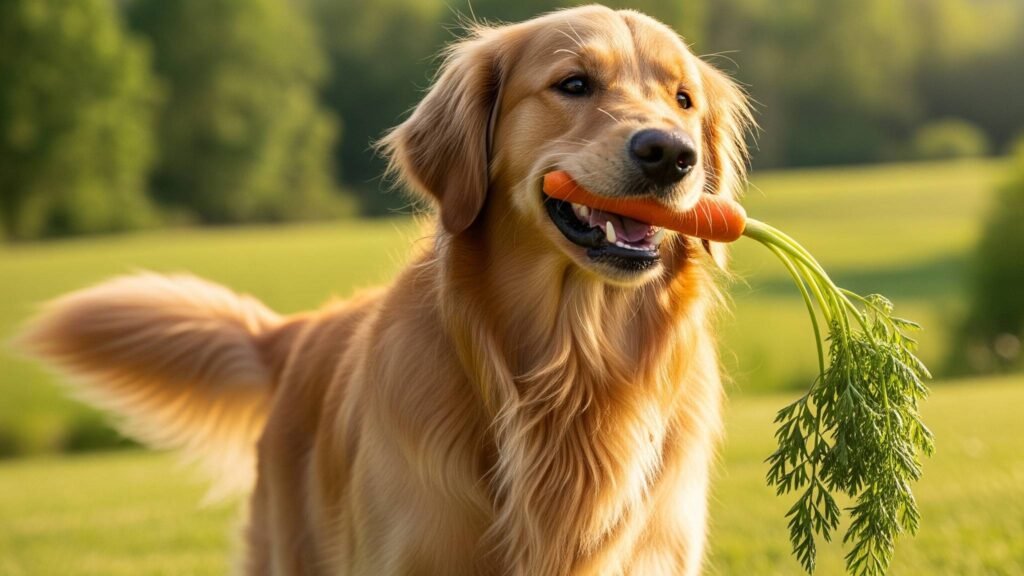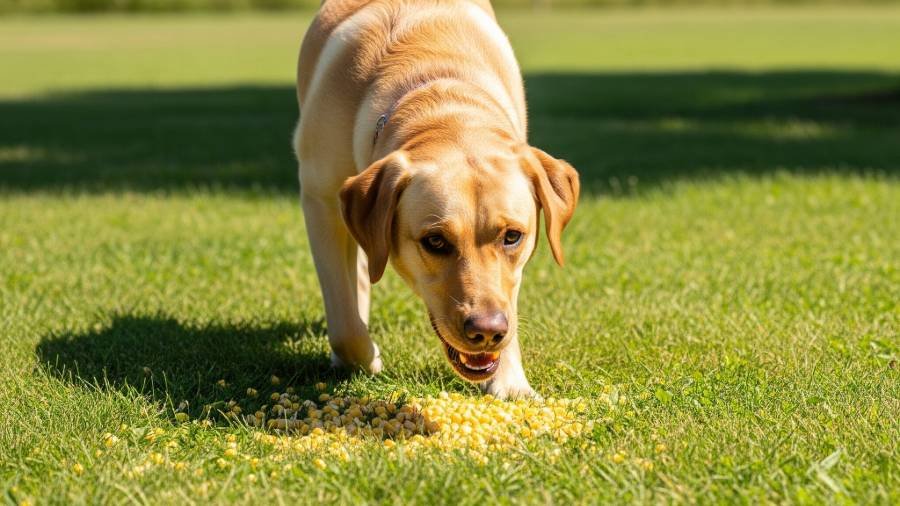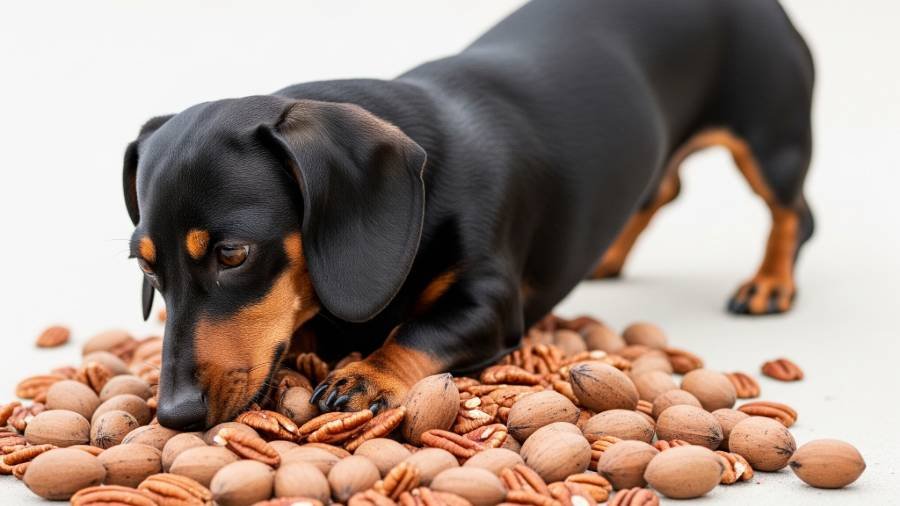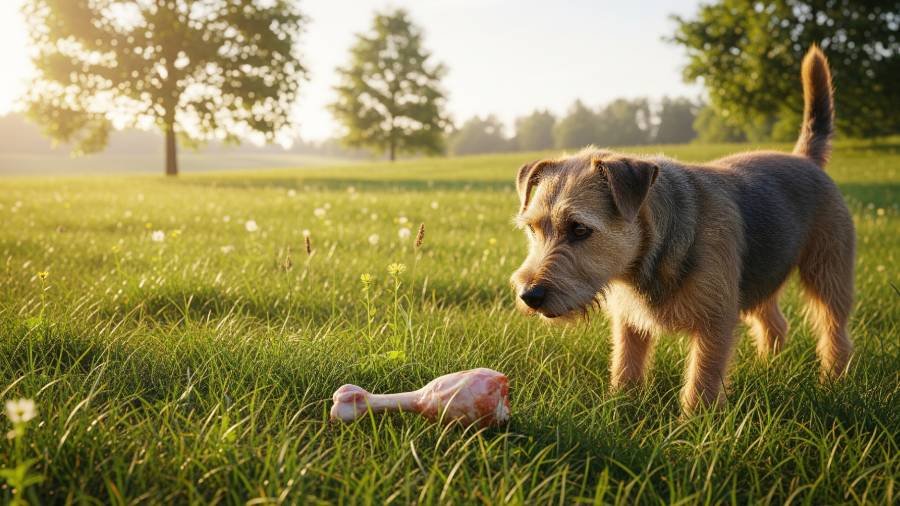Dogs can eat peas, including green peas, snow peas, and sugar snap peas, as a safe and nutritious treat when fed in moderation.
As omnivores, canines can enjoy these vegetables as part of a balanced dog’s diet, but they should complement their regular dog food rather than dominate it.
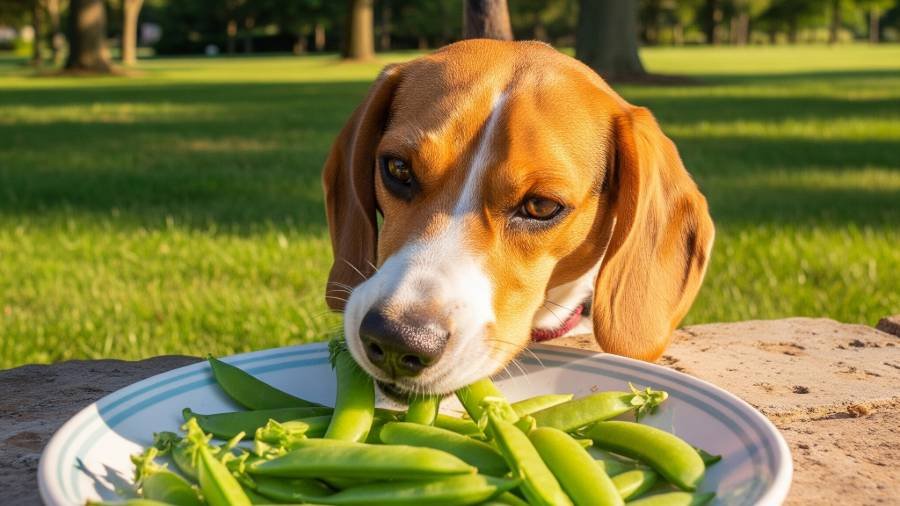
Potential Benefits of Peas for Dogs
When dogs can eat peas in controlled amounts, they offer several advantages that make peas good for dogs:
- Source of Vitamins and Minerals: Peas are a great source of vitamins A, K, and C, plus minerals like iron and potassium, supporting overall health.
- Fiber Support: The fiber in peas aids digestion and promotes healthy bowel movements, benefiting a dog’s diet.
- Low-Calorie Treat: As a safe-for-dogs option, peas provide a light snack for weight management or active pups.
- Protein Boost: Peas offer a modest amount of plant-based protein, adding variety to a dog’s nutrition.
- Antioxidant Properties: The nutrients in peas support the immune system and may enhance skin and coat health.
These benefits make peas a wholesome addition, but they should remain a small part of a dog’s diet. For more on safe vegetables, explore what vegetables can dogs eat.
Risks and Dangers of Peas for Dogs
While peas are safe to feed, certain risks should be considered:
- Choking Hazard: Whole peas or large pods (e.g., snow peas) can pose a risk, especially for small dogs or those that swallow without chewing.
- Digestive Issues: Overfeeding peas may lead to gas, bloating, or diarrhea if a dog has trouble digesting high fiber content.
- Pesticide Residue: Non-organic peas may carry contaminants, requiring thorough washing before dogs enjoy them.
- Allergies: Though rare, some dogs may experience allergic reactions (e.g., itching, swelling) to peas.
- Nutritional Imbalance: Excessive reliance on peas can lack essential proteins and fats needed for a complete dog’s diet.
- Toxic Additives: Seasoned or canned peas with ingredients like garlic or onion are toxic to dogs. See can dogs eat garlic for more.
How to Safely Feed Peas to Your Dog
To ensure peas are a safe treat for your pet parent duties, follow these guidelines:
- Wash Thoroughly: Rinse peas under water to remove dirt, pesticides, or residues, even if organic.
- Prepare Properly: Remove pods from snow peas or sugar snap peas if needed, and serve plain peas in small, bite-sized portions to avoid choking hazard.
- Cook Optionally: Lightly steam or boil peas for easier digestion, though raw green peas are safe for most dogs.
- Feed in Moderation: Offer a small amount (e.g., a teaspoon or a few peas) once or twice a week, keeping treats under 10% of your dog’s daily caloric intake.
- Avoid Seasonings: Keep peas plain, avoiding toxic ingredients like garlic or onion found in some recipes. Check can dogs eat onions for details.
- Monitor Reactions: Introduce peas gradually and watch for digestive upset (e.g., vomiting, diarrhea) or allergies (e.g., itching) over 24–48 hours. Consult a vet if issues arise.
- Consult a Vet: Seek veterinary advice before feeding peas, especially for dogs with health conditions like kidney disease or digestive sensitivities.
Signs of Pea-Related Issues
If a dog eats too many peas or reacts poorly, look for:
- Vomiting or diarrhea from digestive trouble
- Excessive gas or bloating
- Lethargy or reduced appetite
- Itching, swelling, or skin changes (signs of an allergic reaction)
- Choking or gagging (from whole peas or pods)
If these signs appear, stop feeding peas and contact a veterinarian immediately. Choking or severe digestive issues require urgent care.
Expert Opinions
Veterinary sources, such as the AKC and Pet Poison Helpline, confirm that peas are safe for dogs and a healthy snack, praising their vitamin content and low calorie count. The AKC suggests removing pods and serving in small amounts to prevent choking. Experts recommend limiting treats and prioritizing a balanced dog’s diet. For more on safe produce, explore can dogs eat carrots or can dogs eat broccoli.
Additional Considerations
- Health Conditions: Dogs with kidney issues or sensitive stomachs should eat peas cautiously due to fiber. Consult a vet first.
- Puppies: Young dogs may need softer, cooked peas in tiny amounts, as advised by a vet.
- Dog Preferences: Some dogs enjoy the crunch of peas, while others may not. If uninterested, try alternatives like those in can dogs eat apples.
- Organic vs. Non-Organic: Organic peas may reduce pesticide risk, but all should be washed thoroughly.
- Dental Benefits: Chewing peas can help clean dog’s teeth, though harder treats might offer more significant benefits.
Safe Treat Alternatives
Instead of peas, consider these safe-to-feed treats for dogs, tailored to enhance a dog’s diet and offering internal linking opportunities:
- Cooked Turkey: Plain, unseasoned turkey provides lean protein. Learn more in our guide on can dogs eat turkey.
- Blueberries: A few fresh blueberries offer antioxidants and are low in calories. Check our guide on can dogs eat blueberries.
- Carrots: Small, raw or cooked carrot pieces support dental health and add nutrients. Explore our article on can dogs eat carrots.
- Green Beans: A few steamed green beans provide fiber and vitamins. See our guide on can dogs eat green beans.
Introduce new dog treats gradually, monitor for reactions, and consult a vet if unsure about safety.
Dogs can eat peas, including green peas, snow peas, and sugar snap peas, as a safe and nutritious treat when fed in moderation, offering benefits like vitamins and fiber.
However, risks like choking hazard, digestive upset, or pesticide exposure require careful preparation and portion control. Dogs with health issues or puppies should avoid peas unless approved by a vet, and a balanced dog’s diet should remain the focus.
Always consult a veterinarian before adding peas or other people foods. For more on canine nutrition, explore can dogs eat cucumbers, can dogs eat spinach, or what vegetables can dogs eat.
For additional questions about what dogs can eat or nutrition, feel free to ask!
